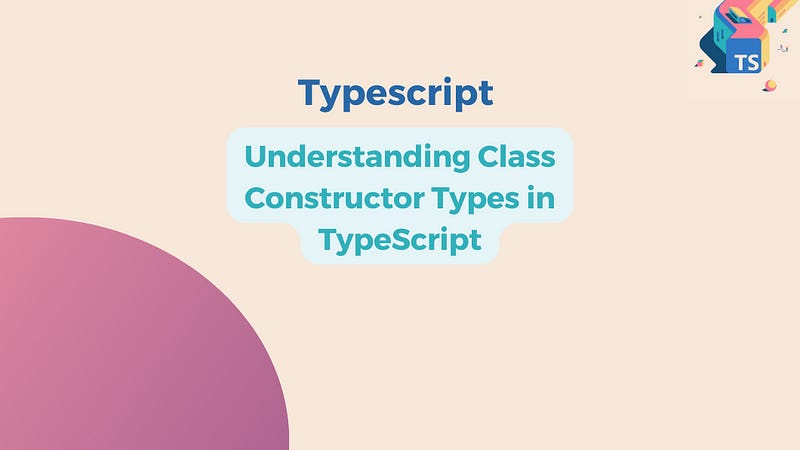Understanding Class Constructor Types in TypeScript
In TypeScript, class constructor types play a crucial role in defining and working with classes. They provide a way to describe the type…
In TypeScript, class constructor types play a crucial role in defining and working with classes. They provide a way to describe the type signature of a class constructor function, enabling developers to enforce type safety when dealing with class instantiation. In this article, we’ll explore the concept of class constructor types in TypeScript, and discuss their syntax, usage, and practical examples.
What is a Class Constructor Type? In TypeScript, a class constructor type represents the type signature of a class constructor function. It specifies the parameters that the constructor function expects and the type of the class instance it returns. By defining class constructor types, developers can ensure type safety when creating instances of classes and passing constructor functions as arguments to other functions.
Syntax of Class Constructor Types: The syntax for defining a class constructor type is as follows:
new (...args: any[]) => MyClass;Here:
newthe keyword indicates that it's a constructor type....args: any[]represents the parameters that the constructor function accepts. This part can be customized based on the constructor signature.=> MyClassspecifies the type of the class instance returned by the constructor function. ReplaceMyClasswith the name of your class.
Usage of Class Constructor Types: Class constructor types can be used in various scenarios, including type annotations, function parameters, and generics. Here are some common use cases:
Type Annotations:
You can use class constructor types to annotate variables and function return types:
// Variable declaration
let constructorType: new (name: string) => MyClass;
// Function return type
function createInstance(ctor: new (name: string) => MyClass): MyClass {
return new ctor('example');
}Function Parameters:
Class constructor types can be used as parameters in functions that expect constructor functions:
function processInstance(ctor: new (name: string) => MyClass): void {
const instance = new ctor('example');
// Do something with the instance
}Generics:
Class constructor types can be used in generic functions to enforce type constraints:
function createInstance<T extends { new (...args: any[]): any }>(ctor: T): InstanceType<T> {
return new ctor('example');
}Practical Example:
Let’s illustrate the usage of class constructor types with a practical example:
class Person {
constructor(public name: string) {}
}
let constructorType: new (name: string) => Person;
constructorType = Person;
const instance = new constructorType('John');
console.log(instance.name); // Output: JohnClass constructor types in TypeScript provide a powerful mechanism for defining the type signature of class constructors. By leveraging class constructor types, developers can ensure type safety when working with class instantiation, passing constructor functions as arguments, and defining generic constraints. Understanding and effectively using class constructor types is essential for writing robust and type-safe TypeScript codebases.


